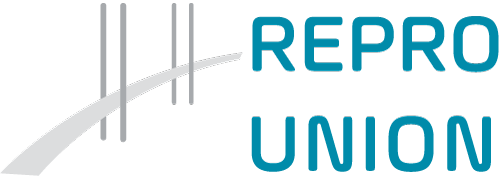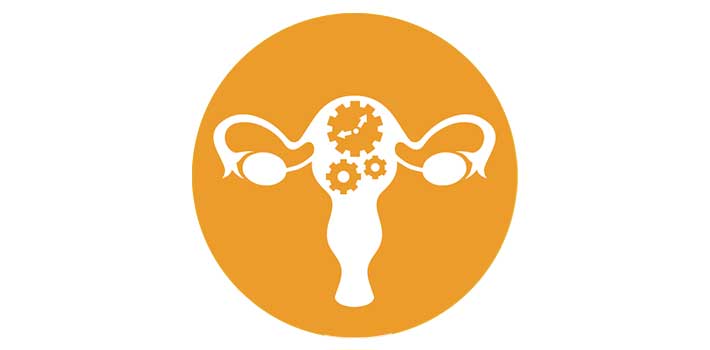In December 2019, the Lundbeck Foundation introduced new experimental grants to support extraordinary research ideas that challenge norms and prevailing ideas within the fields of biomedical, clinical or health science.
Among the successful applicants was Claus Yding Andersen, who received DKK 1.98 in support of the work to investigate the potential for developing a hormone-producing ovarian cell implant as an alternative to the hormones currently prescribed to many menopausal women.
Due to the loss of circulating sex-steroids, menopause increases the risk of osteoporosis, cardiovascular disease, dementia and cognitive decline. In many parts of the world, women live into their eighties and nineties, which means that they spend three to four decades in menopause.
“Today, hormone replacement therapy is the only treatment available, which we would like to change by developing an ovarian cell implant that can produce female sex hormones. This would contribute to healthy ageing for women in menopause,” says Professor Claus Yding Andersen, Head of Rigshospitalet’s Laboratory of Reproductive Biology and of ReproUnion’s challenge 3. He continues: “This is also linked to our work in ReproUnion’s challenge 3, where we gain detailed knowledge of ovarian function towards the ultimate aim of creating a human artificial ovary within a ten-year period.”
How to mature oocytes in vitro to potentially improve infertility treatment?
Controlling follicle development and utilizing a larger part of the ovarian follicle pool holds great potential for improving reproductive outcomes in infertile women, particularly in women who are facing infertility due to advanced maternal age, premature ovarian insufficiency (POI) or gametotoxic cancer treatment.
Professor Claus Yding Andersen and his lab is working to understand and optimize the requirements to mature human immature eggs (oocytes) in vitro. A key component is the development of an efficient in vitro culture system for human follicles. In May 2020, the Danish Independent Research Fund granted DKK 1.9 mio. towards the project, which enables continuous funding of postdoc Jesús Cadenas Moreno and his work to optimize the IVM protocol for the human immature oocytes, which are recovered from the surplus ovarian tissue donated by women undergoing ovarian tissue cryopreservation.
“Many questions regarding follicle activation, growth, and maturation still need to be addressed. We believe our studies will provide unique information regarding the regulatory pathways involved in early follicle development and provide a chance to pinpoint key factors controlling follicle growth at specific developmental stages and ultimately oocyte maturation,” says Jesús Cadenas Moreno, who works in the lab of Professor Claus Yding Andersen.
Jesús Cadenas Moreno contributes to characterize the proteome and transcriptome of the earliest stages of human follicles and investigate the effect of new, well-known growth factors and hormones on isolated human preantral follicles in a 3D culture system.
“We need help from other labs to answer important questions regarding human follicle development in vitro, such as the transcriptome and proteome of different follicular categories. So we work in close collaboration with ReproUnion colleagues at Lund University in Sweden, where the proteomic analysis is conducted by Professor Johan Malm and Professor Gyorgy Marko-Varga at the Biomedical Center. The transcriptome analysis is conducted by Professor Eva Hoffmann at the Center for Chromosome Stability, at the University of Copenhagen.
The origins of chromosome errors in human eggs and embryos
In May 2020, the Danish Independent Research Fund awarded Eva Hoffmann DKK 1.9 mio to investigate the origins of chromosome errors in human eggs and embryos.
Chromosome defects in women’s eggs are the biggest reason for losing every fourth desired pregnancy. By developing new technologies to map chromosome defects directly in women’s eggs, Prof Eva Hoffmann’s lab has shown that errors sharply increase with women’s age. Now, they want to identify the mechanisms underlying this phenomenon. “We hope to use this knowledge to develop interventions that can be utilized to provide better genetic quality in eggs and reduce pregnancy loss,” says Professor Eva Hoffmann, who serves on ReproUnion’s Executive Board and is part of Challenge 3.
ReproUnion supported the collaboration between Eva Hoffmann’s lab and international clinics that provided the 3000 human eggs for the research. In October 2019, ReproUnion reported on this in conjunction with the study ‘Chromosome errors in human eggs shape natural fertility over reproductive lifespan’, which was published in the renowned journal Science.
In July Jenny Gruhn was nominated for the Basic Science Award for oral presentation at the 36th Annual Meeting of the European Society of Human Reproduction and Embryology (ESHRE).
“ESHRE was a unique chance to showcase our work and highlight the importance of close collaboration between basic scientists and clinicians. It was also exciting to present our research at one of the biggest conferences in reproductive science and medicine,” said postdoc Jenny Gruhn, member of ReproUnions challenge 3.

